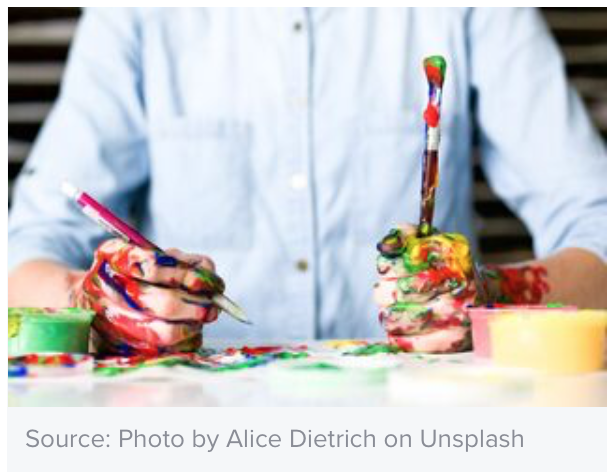Release time: 2020-05-22 12:46
Improv Boosts Creativity and Psychological Well-Being
New research reveals the benefits of theatrical improvisation.
Theatrical improvisation is being applied more and more to other fields. There are corporate trainings, improv therapy, and workshops to help medical professionals improve their bedside manner. But studies that confirm its efficacy for boosting creativity and overall mental health are few and far between. That’s why I want to highlight the second such study I’ve come across that uses a control group to demonstrate that improv does indeed benefit participants’ creativity and psychological well-being.
On April 21, 2020, Diana Schwenke, Maja Dshemuchadse, Lisa Rasehorn, Dominik Klarhölter, and Stefan Scherbaum published their study “Improv to Improve: The Impact of Improvisational Theater on Creativity, Acceptance, and Psychological Well-Being” in the Journal of Creativity in Mental Health. The study compared an improv group (IG) to a control group (CG). The improv group consisted of 30 subjects who participated in a six-week improv workshop. Each weekly class was two-hours. The control group consisted of 28 subjects who did not take the improv workshop. Any participant who had a stressful life event during the six weeks was removed from the study. The authors used questionnaires and surveys before and after the six-week period to measure participants’ creativity, mindfulness, acceptance, self-esteem, self-efficacy, and resilience.
Creativity

The study found that after six weeks of improv lessons participants were more creative. The study measured divergent thinking—the ability to form multiple, novel solutions to problems and found that improv did, in fact, help participants boost this type of creativity. The authors write, "Our findings contribute conclusive evidence that improv promotes peoples’ ability to find creative and resourceful solutions and that therefore it can help us to think in more diverse ways or even break away from ingrained patterns of behavior.”
Self-Esteem and Self-Efficacy

The other finding was that improv improved participants’self-esteem and self-efficacy. This is essentially how confident someone is in themself and their abilities. The authors attribute this benefit of improv to the open and trusting atmosphere that improvisation requires. Improvisers are trained to accept each other’s ideas and add onto them. They also practice embodying principles such as turning mistakes into assets and making other people look good. This creates a trusting environment where people don’t have to worry about being good or bad or right or wrong. Instead, they focus on what’s in the group’s best interest, which may explain the gains in participants’ psychological well-being related to self-esteem and self-efficacy. Simply stated, playing well with others may make you feel better about yourself.
Improv, Creativity, Acceptance, and Psychological Well-Being
The study also measured participants’ resilience, mindfulness, and acceptance but did not find significant increases in these areas. More research and larger sample sizes are required to answer whether or not improv has measurable benefits in these areas.
Only people who had never improvised participated in the study, so questions remain about what kind of benefits might be possible with more extensive improv training. We also don’t know whether the short-term benefits of improv have longevity after the improv classes are over.
Peter Felsman led another improv study with a control group that showed improv increases people’s uncertainty tolerance, so this new study is a welcome addition to the scientific research on how improvisation benefits people’s creativity and well-being. The authors of this new study conclude that improv may be an especially helpful tool for people who don’t respond well to traditional talk therapy. They also state:
Improv provides the additional advantage of being less focused on flaws and shortcomings. Instead, this approach is focused exclusively toward activation of resources, mutual support, and a fruitful interlinkage of existing potentials with newly established resources. It is more creative, more body-related, more playful.
Researchers are finally starting to quantify improvisation’s benefits, and they're finding that instead of focusing on our weaknesses and problems, improv offers us a safe space to play well with others, go with the flow, and take a break from overanalyzing. It’s no surprise to most improvisers that improv helps boost creativity and well-being, but it’s nice to finally have some evidence to confirm what we’ve long suspected. There's more improv research in the works, and my hope is that each new study helps facilitators, trainers, teachers, and therapists more strategically incorporate improv in corporate, educational, and therapeutic settings, so that more people can experience the improv's benefits such as increased creativity, confidence, and uncertainty tolerance.

Clay Drinko is an educator, an improviser, and the author of Theatrical Improvisation, Consciousness, and Cognition.
psychology today